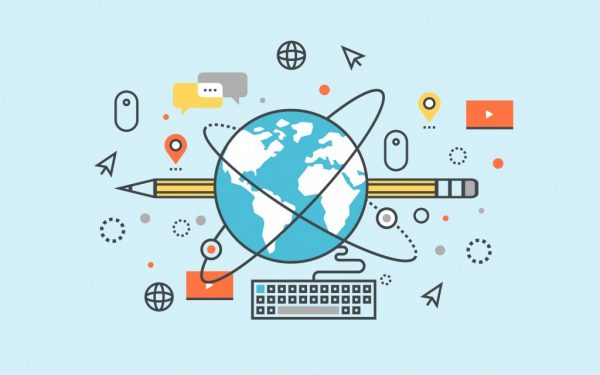Hi everyone! My name is Matt Graff, and I’m a third-year Geography and Computer Science student. I love the blend of the natural world and the digital one. I’d say a lot of my educational journey has been shaped by my curiosity and willingness to utilize different learning strategies, always improving. I also really enjoy helping others understand tough concepts, which I’ve found actually deepens my own learning in the process – a strategy I would like to delve into further in the future!
What is Distributed Education?
Distributed education is a strategy for education that is decentralized – away from the classroom. It can be online, asynchronous, and come in many forms and flavours. The goal of distributed education is to offer flexibility to students to balance education with other commitments and increases access to education for those unable to attend in-person classes.
Open Education
Open education promotes free access to educational resources, making learning more inclusive. It removes barriers to learning that were once very prevalent (price of textbooks, cost of courses, etc). Open education is much more prevalent today than ever, especially in my field with coding – you can access excellent resources (even courses from Harvard) for free. Open education can open us up to a whole array of new voices that maybe couldn’t access previous learning resources, helping us to gain new perspectives on things.
Modes of Learning
Learning can be face-to-face, online, or blended. I like both equally, but maybe in-person a bit more! With online learning, I have the flexibility of learning from anywhere – even outside! However, I think in-person helps to build relationships with peers and really accelerate learning by hearing different perspectives on concepts.
Digital Literacy
Digital literacy can be defined as your ability to use technology to view, communicate and create information. It’s very important in distributed and open learning environments because the way you utilize the learning resources matter. If you cannot communicate with tools for learning like Brightspace, it will make learning the concepts even harder. I’d say my digital literacy has helped my learning and hurt it at times – being new to different softwares/systems that instructors use has sometimes caused challenges – so I think it is worth it to take some time and learn more digital literacy.
Digital Identity
Digital identity is your public presence online. Digital identity is particularly important in my field (computer science especially) since many of your skills can be shown and viewed – but there also should be an effort made to make it cohesive and maintain privacy on the internet.
